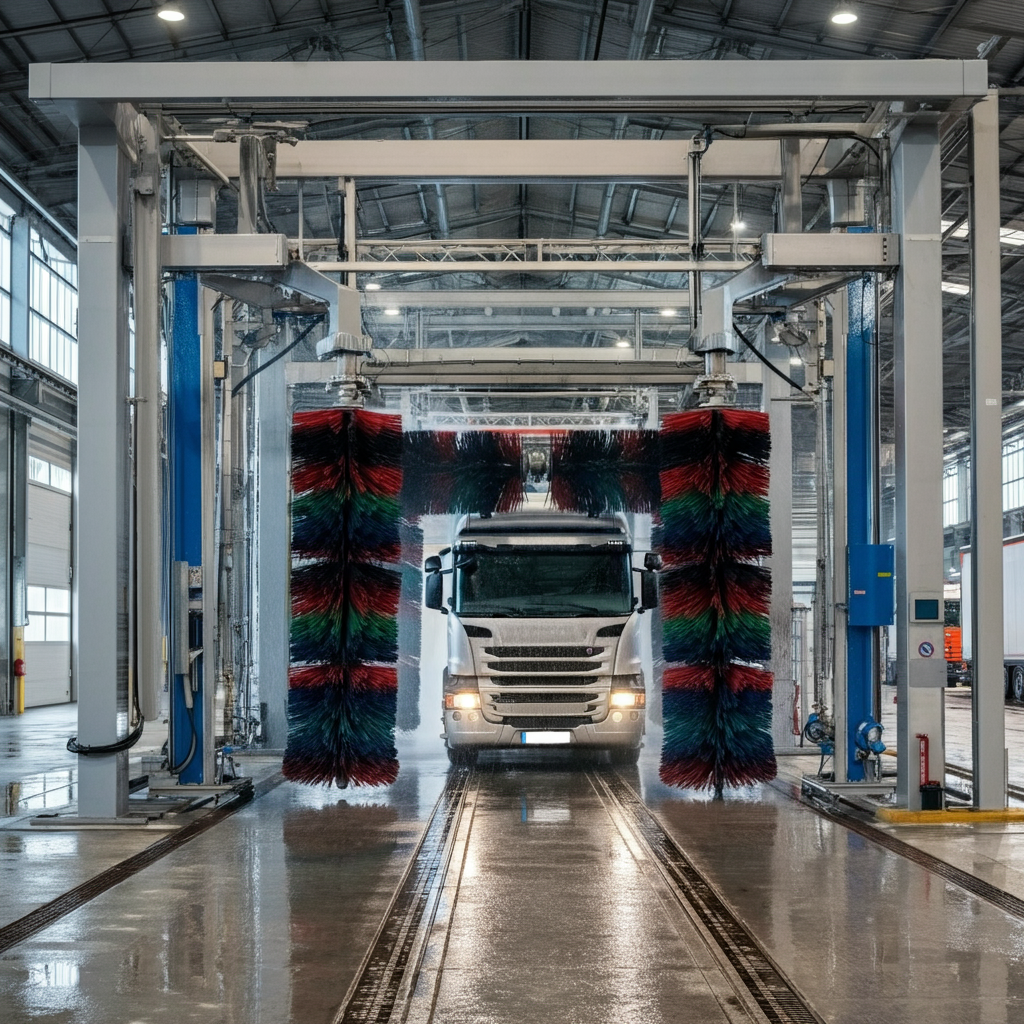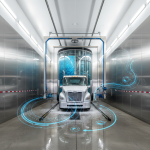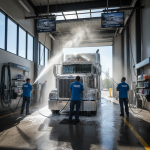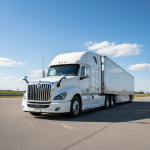Fleet managers are constantly looking for ways to improve efficiency, reduce costs, and maintain the professional appearance of their vehicles. One solution that has gained significant traction is automated fleet washing systems. These systems offer superior performance compared to traditional manual washing methods, delivering faster cleaning times, consistent results, and substantial cost savings.
If you’re managing a large fleet or operating in time-sensitive industries like logistics or public transportation, automated fleet washing might just be the game-changer you’ve been searching for. Below, we’ll explore the key benefits, practical applications, and real-world scenarios that prove why these systems are worth the investment.
What Are Automated Fleet Washing Systems?
Automated fleet washing systems are purpose-built setups designed to wash trucks, buses, or other commercial vehicles without the need for significant human labor. Typically housed in fixed locations or as part of portable rigs, these systems utilize programmed spraying, scrubbing, and rinsing sequences that clean vehicles efficiently and uniformly.
From standalone units optimized for specific vehicle types to fully customizable systems tailored for diverse fleet needs, there’s a solution for nearly every industry.
Why Are They Becoming Popular?
Traditional manual washing of fleet vehicles demands significant time and labor. For businesses managing dozens—or even hundreds—of vehicles, the manpower needed to clean an entire fleet can be overwhelming and costly. Automated systems address this challenge:
- They streamline the washing process, completing jobs in just a fraction of the time it would take a crew of workers.
- They deliver consistent cleaning quality, ensuring that every vehicle looks equally polished, regardless of size or complexity.
- They help businesses optimize their operating costs by reducing reliance on manual labor and minimizing vehicle downtime.
The Benefits of Automated Fleet Washing Systems
Beyond convenience, these washing systems bring measurable advantages to fleet owners. Here are the top reasons why companies are making the switch:
1. Faster Washing, Less Downtime
Time is money, and this is especially true for businesses reliant on their fleets to provide services or transport goods. Automated washing systems work quickly, completing tasks much faster than manual methods. For instance, a system designed to wash buses can clean an entire unit in under five minutes—a job that might take human workers 30 minutes or more.
By reducing the time vehicles spend off the road for cleaning, companies can keep more of their fleet operational, boosting overall productivity.
2. Lower Labor Costs
Manual washing is labor-intensive and repetitive, requiring multiple staff members to clean even a single large vehicle. Automated systems all but eliminate the need for human labor in the washing process, significantly reducing payroll costs.
Imagine a logistics company managing a fleet of 50 trucks. By switching to an automated system, they could cut down labor hours spent solely on washing, reallocating that budget toward more strategic or higher-value tasks.
3. Consistent and Professional Results
When cleaning is done manually, results can vary depending on the skill and diligence of the workers. Automated fleet washing systems ensure uniformity, leaving every vehicle spotless, presentable, and free of dirt, grime, or residue. This professionalism enhances a company’s brand image and meets regulatory cleanliness standards for certain industries.
4. Eco-Friendly Operation
Many automated systems are designed with sustainability in mind. They often include features like water recycling and environmentally safe detergents. Aside from being better for the planet, this can also save companies money on water and chemical usage over the long term.
5. Customizable to Specific Needs
Not all fleets are the same. Whether you’re managing garbage trucks, refrigerated trailers, or public buses, automated systems can be tailored to handle the specific dimensions, design challenges, or dirt levels of your vehicles. Customizable features might include adjustable brushes, specialized nozzles, or even targeted cleaning for hard-to-reach areas.
Where Automated Fleet Washing Systems Shine
These systems can be highly advantageous for a variety of industries and scenarios. Here are some examples of where their implementation proves invaluable:
1. Logistics and Freight Companies
For long-haul trucking businesses, keeping a fleet clean is essential for maintaining a pristine corporate image. Automated systems allow freight companies to maintain high visual standards without pulling drivers off the road for extended periods.
2. Public Transportation
Municipalities overseeing buses, trams, or trains often grapple with strict hygiene and presentation requirements. Automated washing systems ensure these vehicles are cleaned quickly and thoroughly between operations.
3. Rental or Leasing Fleets
Companies offering vehicle rentals or leases, such as truck rental firms, can benefit from the consistency and efficiency of these systems. Ensuring vehicles look spotless can improve customer satisfaction and streamline turnaround times.
4. Waste Management
Garbage trucks require frequent but thorough cleaning to maintain hygiene and operational safety. Automated systems designed for heavy-duty cleaning excel in such rigorous environments, especially since they reduce exposure of personnel to harmful contaminants.
Getting Started With Automated Fleet Washing
Making the switch to automated fleet washing doesn’t have to be daunting. Consider these steps to guide your decision-making process:
- Assess Your Fleet Size and Needs: The larger your fleet, the more cost-effective an automated solution becomes. Evaluate the types of vehicles you manage and their unique cleaning requirements.
- Compare System Providers: The market offers a wide range of systems—from small-scale mobile units to expansive fixed installations. Look for machines with proven performance, eco-friendly features, and maintenance guarantees.
- Calculate Long-Term ROI: While automated washing systems often require an initial investment, the time and labor savings compound over months and years, ultimately paying for themselves.
Why You Should Take the Plunge
Automated fleet washing systems are more than just a luxury—they’re a strategic investment for businesses managing fleets of any size. By improving operational efficiency, reducing costs, and ensuring a consistently professional appearance, these systems position companies to thrive in competitive markets.
If you’re ready to transform your fleet maintenance strategy, now’s the time to explore your options. Research leading providers, assess your fleet’s needs, and discover how automated systems can streamline your operations while keeping your vehicles in top-notch condition.
Take the next step today—invest in an automated fleet washing system and watch your business shine, one vehicle at a time!




